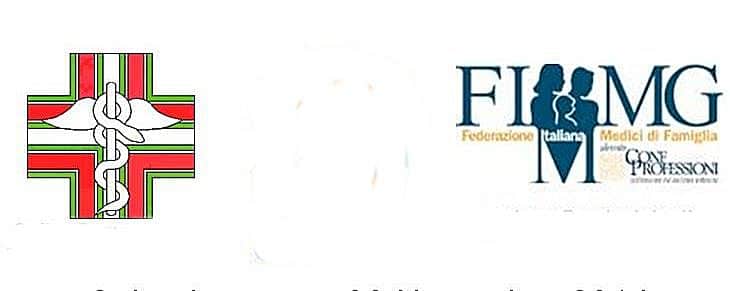
Pharmacists who manage fragile patients in the area and avoid improper access to the emergency room. "We thought about whether and how much the pharmacy can act as a filter especially in the face of symptoms reported by patients discharged from hospital and manageable in the area".
Thursday, 06 November 2014 – Doctor33
Pharmacists who manage fragile patients in the area and avoid improper access to the emergency room, monitoring them on the basis of the training imparted by emergency-urgency doctors: this is the project that will be financed by the Piedmont Region - with 4 million euros - for the three-year period 2013/ 2015 and which caused the disappointment of family doctors. The Order of Pharmacists of Turin, Federfarma Piemonte and the Simeu (Emergency Emergency Medicine Society) came forward.
«Everything stems from a dialogue with the past president Simeu George Carbone which signaled to us how the Piedmontese Ps are invaded by manageable patients in the area, with the risk for the hospital of not following the real emergencies", he says Maximum Mana president of Federfarma Piemonte. «We thought about whether and how much the pharmacy could act as a filter especially in the face of symptoms reported by patients discharged from hospital and which can be managed in the area with practices other than a medical visit: blood pressure monitoring with fibrillation control, or weighing to verify if the patient retains fluids. In the case of a changed clinical picture or to be checked, we would refer them to the family doctor ».
The Fimmg reply is addressed to the Councilor for Health Antonino Saitta who gave the go-ahead for funding: «A few days ago Saitta said that the 90% of visits to the emergency room is inappropriate and local medicine must do its part to prevent patients who are not at all or not very urgent from crowding the emergency rooms.
Fimmg responded by underlining the shortcomings of the emergency medical service and asking to talk about it at a table as it hasn't been the case for years. In response, here is the proposal for screening pharmacists », he says Alexander Dabbene, number two in the national Fimmg continuity of care.
The problems of inappropriateness would be especially in Turin, «city where the service is underfunded by more than 50%; the optimal ratio here is one continuity of care doctor for every 15,000 inhabitants and should be one to 6,500; 60 doctors are rotating and there should be 135. But there's more. The entire city service is financed by only one ASL, Turin 1, with a budget that must also be sufficient for ASL To 2.
We underlined these shortcomings and the next day, strangely, pharmacies and Simeu came forward ». For Federfarma Piemonte there is no empowerment to the detriment of the mmg: «The patient often sees the pharmacist more than he sees the mmg, he enters for various reasons - says Mana - and in 80% cases he is loyal to a pharmacy. Many have pathologies – diabetes, decompensation, COPD – for which we can monitor drug compliance and verify whether the basis of a worsening is having taken a pill or having adapted a cure; the family doctor is present, in this process, while the Ps must be there as little as possible ».
Mauro Miserendino
Cittadinanzattiva: Pharmacy services fulcrum of healthcare digitization
07 November 2014 – Pharmacist33
 Improving patient care, guaranteeing continuity of care, monitoring and adherence to therapy and producing precise and exhaustive information on pathologies that can be shared by healthcare operators. These objectives can be achieved by implementing the computerization process which in Italy includes, among other aspects, Cup, ESF, dematerialized prescription, but also telemedicine, and putting the patient at the centre.
Improving patient care, guaranteeing continuity of care, monitoring and adherence to therapy and producing precise and exhaustive information on pathologies that can be shared by healthcare operators. These objectives can be achieved by implementing the computerization process which in Italy includes, among other aspects, Cup, ESF, dematerialized prescription, but also telemedicine, and putting the patient at the centre.
A process in which the service pharmacy is also fully involved and which will also have to be implemented through the reorganization of primary care envisaged by the Health pact. These are some of the aspects that emerge from the Civic Recommendations on E-Health, made by the Tribunal for Patients' Rights-Active Citizenship, together with representatives of patient associations, scientific societies, medical professions and Federfarma, with the aim of "making the great challenge of the computerization of healthcare and telemedicine is operational, exploiting its potential and reducing its risks, and aiming to put the citizen at the center of the electronic healthcare revolution".
The premise is that "computerization in healthcare and telemedicine have positive effects" in particular for "improving patient care, ensuring continuity of care, monitoring and adherence to therapy" and for "producing accurate and comprehensive information on pathologies.
Fully involved in the path "even the pharmacies that change their face by becoming service pharmacies, a place where the citizen, in addition to being able to book specialist outpatient assistance services, will be able to undergo non-invasive self-assessment tests with the support of a healthcare professional ».
Among the main initiatives launched in Italy is the «cup, the creation of the Electronic Health Record (FSE), the digitization and electronic transmission of prescriptions (ePrescription) and sickness certificates, the redefinition of the assistance network through telemedicine ». And precisely in the light of the service pharmacy and the aforementioned Health Pact, it should be remembered that «the establishment of AF extension and some UCCP» is based «on initiative medicine characterized by a multi-professional care setting in which the contribution of electronic healthcare will be fundamental. Continuity of care and integration will be possible by starting specific implementation processes" with solutions "capable of being interoperable".
According to the dossier, which develops 59 recommendations, then "it is necessary to overcome the competitive logic of the regions and operate with the intention of identifying a common methodology that takes into account first of all the needs of citizens and professionals in the sector, guaranteeing the authenticity of the documents and protecting them from unauthorized access.
For this reason it is necessary "to use technological innovation in order to guarantee the exchange of information between healthcare professionals and to improve the quality, safety and efficiency of processes" and "act on the cultural aspect of the new methods, also investing in the information and education for citizens, regarding how technological innovation integrates with the quality of care and assistance".
The creation of a culture is also fundamental: it is necessary to "raise awareness and create a climate of trust in e-health solutions" as well as "implement digital literacy and training in the use of e-health tools for both health professionals and patients users of the service and of those who play a role in supporting and helping the patient".
And among other points, there is also that of "following up on the national guidelines on the cup system in order to fully integrate the offer of health services, minimize unnecessary travel by the citizen, putting all the necessary information online public and private-affiliated structures".
Last but not least, "to include among the stakeholders who participate in the Coordination Committee of the Digital Health Pact, representatives of patient and citizen associations", whose delays on the roadmap are also highlighted.
Frances Giani





